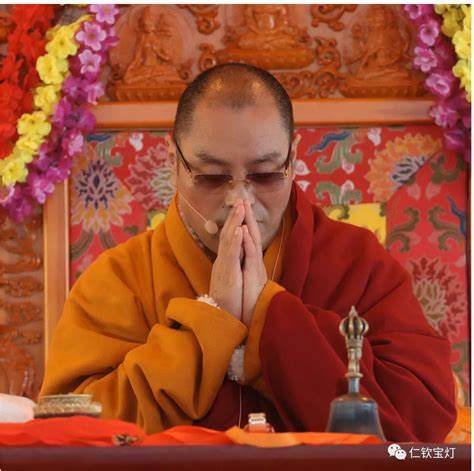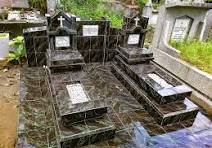Tibetan exiles and international rights groups have launched a wave of protests after Vietnamese authorities refused to release the body of Tulku Hungkar Dorje, who died in Chinese custody. Calls are growing for an independent investigation into alleged transnational repression.
BY Navin Upadhyay
April 20, 2025 – A wave of protests has swept across the Tibetan exile community and global advocacy groups, demanding that the Vietnamese government halt plans to cremate the body of Tulku Hungkar Dorje Rinpoche, a revered Tibetan Buddhist abbot, and release it to his family for proper funeral rites. The 56-year-old spiritual leader died under suspicious circumstances in Chinese custody in Ho Chi Minh City on March 29, 2025, sparking allegations of transnational repression and fears that his body may bear signs of torture, which Chinese authorities are eager to conceal through a hasty cremation.
A Life Dedicated to Tibetan Identity
Tulku Hungkar Dorje, the 10th abbot of Lungngon Monastery in Gade County, Golok, Tibet, was a prominent figure known for his tireless efforts to preserve Tibetan language, culture, and Buddhist traditions. Born in 1969, he founded the Hungkar Dorje Vocational Training Center, providing free education to over 1,000 students, and established healthcare and cultural initiatives like the Hungkar Compassion Medical Clinic and a library to safeguard Tibetan literary treasures.
ALSO READ: Tibetan Parliament Demands Probe into Death of Revered Lama
His advocacy drew the ire of Chinese authorities, who interrogated him in August 2024 over his composition of a long-life prayer for the Dalai Lama, his refusal to fully endorse the Beijing-appointed Panchen Lama, Gyaltsen Norbu, and his failure to implement state education policies in his schools.
Five major Tibetan NGOs in Dharamsala have launched a protest demanding justice for Tulku Hungkar Dorje, who died under suspicious circumstances while in Chinese custody in Vietnam.
Sources confirm Chinese officials are preparing to cremate his body in Vietnam under strict… pic.twitter.com/DSivwvZZVS
— Bodpa Warriors (@BodpaW) April 18, 2025
Fleeing persecution, Rinpoche escaped to Vietnam in late September 2024, living in hiding until his arrest on March 25, 2025, in a joint operation by Vietnamese police and Chinese intelligence agents. He died four days later, with Vietnamese authorities claiming a heart attack as the cause of death—a claim met with skepticism due to the lack of documentation and restricted access to his body, currently held at Vinmec Central Park International Hospital in Ho Chi Minh City.
Escalating Protests Demand Justice
The suspicious circumstances of Rinpoche’s death have ignited a series of protests, with Tibetan exile communities and advocacy groups rallying for transparency and accountability. On April 11, 2025, the Tibetan Youth Congress (TYC) staged a demonstration outside the Chinese Embassy in New Delhi, India, where activists scuffled with police. Displaying photos of Rinpoche and Tibetan flags, they chanted “Justice for Hungkar Dorje” and submitted a petition to Vietnamese officials demanding an independent investigation and the return of his remains.
ALSO READ: Pope Francis Avoids Meeting JD Vance Amid Migration Tensions
The following day, April 12, a candlelight vigil in Dharamsala mourned Rinpoche’s death, with devotees and activists calling for international scrutiny. The Central Tibetan Administration (CTA) condemned China’s role, with spokesperson Tenzin Lekshay describing the case as a “troubling escalation” of transnational repression.
On April 14, 20 Tibetan youth activists from Students for a Free Tibet (SFT)-India protested outside the Vietnamese Embassy in New Delhi, brandishing a banner reading: “RELEASE THE BODY, REVEAL THE TRUTH – #JusticeForTulkuHungkarDorje.” One protester wore a mask of Chinese President Xi Jinping with blood-stained hands, symbolizing alleged complicity in Rinpoche’s death. The protest coincided with Xi’s visit to Vietnam, raising fears that diplomatic ties could obstruct justice.
The most significant demonstration occurred on April 18 in Dharamsala’s McLeod Ganj square, where five major Tibetan NGOs—Tibetan Youth Congress, Students for a Free Tibet, Tibetan Women’s Association, International Tibet Network, and National Democratic Party of Tibet—united in protest. The coalition condemned Vietnam’s refusal to release Rinpoche’s body and its plans for a secret cremation, which they argued would destroy evidence of potential torture. Ju Tenkyong, Director of the Amnye Machen Institute, revealed that Chinese officials had instructed monks from Lungngon Monastery to prepare for cremation with strict conditions: no photos, videos, or attendance by Vietnamese Buddhists. The monks, summoned to Vietnam on April 5, were only allowed to view Rinpoche’s face on April 10 and expressed concerns about answering to his family without documentation.
A revered Tibetan lama dies in custody. China calls it a “retreat.” Vietnam issues a death certificate. No photos. No witnesses. No truth.
Tulku Hungkar Dorje’s death is not a mystery.
It’s a message.Silence him. Cremate him. Erase him.
His voice is gone, but the truth still… pic.twitter.com/V7sXYUQYZH
— Tibet Culture (@CultureTibet) April 18, 2025
ALSO READ: Assam Horror: Man Beheads Wife, Rides to Police Carrying it
Dr. Lobsang Yangtso of the International Tibet Network emphasized the urgency, stating, “Pressure must be applied now to stop the cremation, preserve the body, and demand an independent investigation before it’s too late. This is the latest example of China’s transnational repression of Tibetans in free countries.”
Tenzin Lekdhen of SFT-India added, “Tibetans fear the worst: that Tulku Hungkar Dorje was abducted, tortured, and killed by Chinese agents for his efforts to preserve Tibetan culture.” Sonam Tsering of TYC called any premature cremation “tantamount to complicity in the death of Tulku Hungkar Rinpoche,” urging the strongest international condemnation.
Fears of a Cover-Up
The planned cremation has intensified fears that Chinese authorities seek to conceal evidence of torture. The CTA, Human Rights Watch, and six advocacy groups, including the Tibet Justice Center and Free Tibet, have called for an independent investigation, citing the Vietnamese authorities’ unsubstantiated heart attack claim and the denial of family access to Rinpoche’s body. The absence of official documentation and restrictions on monks viewing the remains fuel suspicions of a deliberate cover-up, especially given China’s history of transnational repression, such as the 2022 abduction of dissident Dong Guangping from Vietnam.
The timing of Xi Jinping’s April 14-15 visit to Vietnam heightened concerns, with activists fearing that diplomatic pressures could suppress transparency. Reports of an intensified crackdown at Lungngon Monastery—spiked surveillance, restricted movement, and intimidation of monks and laypeople—further suggest Beijing’s intent to silence dissent and erase evidence.
Global Calls for Action
The Tibetan diaspora and supporters have issued urgent appeals to the international community, including the United Nations, to:
- Demand the preservation of Rinpoche’s remains and condemn any immediate cremation.
- Launch a transparent international investigation into his death.
- Condemn the crackdown at Lungngon Monastery and demand an end to repressive measures.
- Pressure Vietnam to preserve evidence and cooperate with an investigation.
- Hold China accountable for its alleged role in Rinpoche’s death.
Human Rights Watch emphasized that an impartial inquiry, including an autopsy, is critical to establish the cause of death, per the Minnesota Protocol on Potentially Unlawful Deaths. The CTA and activists warn that failure to act risks emboldening further Chinese repression, with Rinpoche’s cousin, Golog Tsering, pleading, “We need Rinpoche’s remains returned so we can honor him according to our traditions.”
As protests continue, the Tibetan community mourns a leader whose work empowered thousands. Rinpoche’s death, echoing the 2015 custodial death of Tenzin Delek Rinpoche, underscores the dangers faced by those preserving Tibetan identity. With the threat of cremation looming, the global Tibet movement remains resolute, vowing to seek justice for Tulku Hungkar Dorje and ensure his legacy endures.














